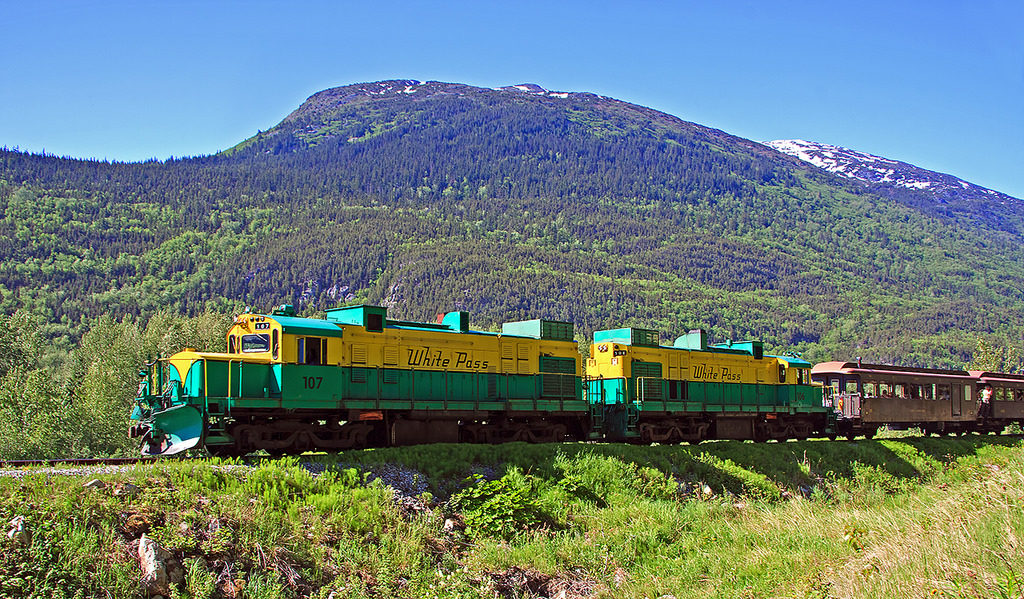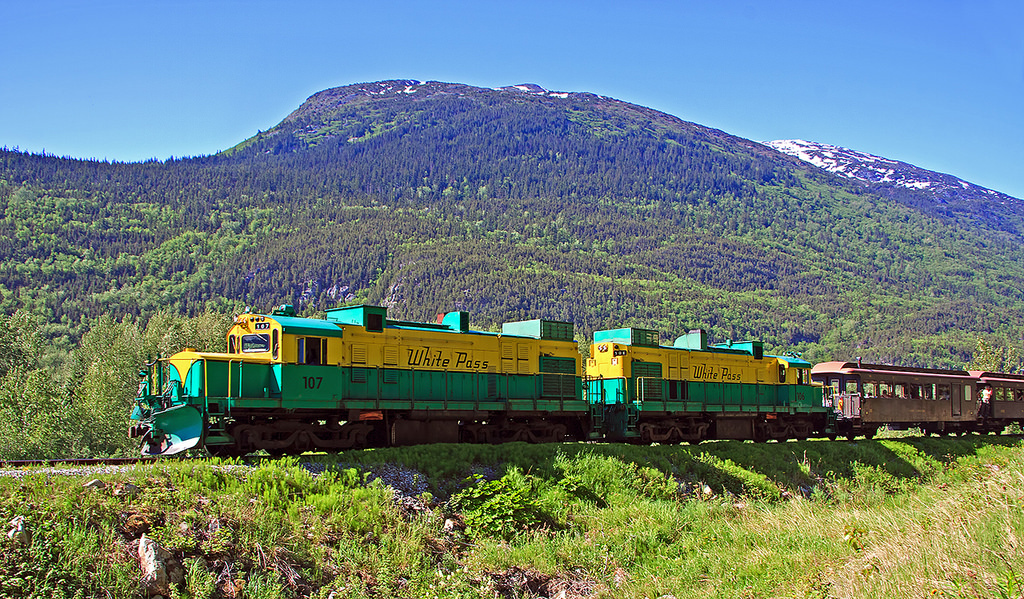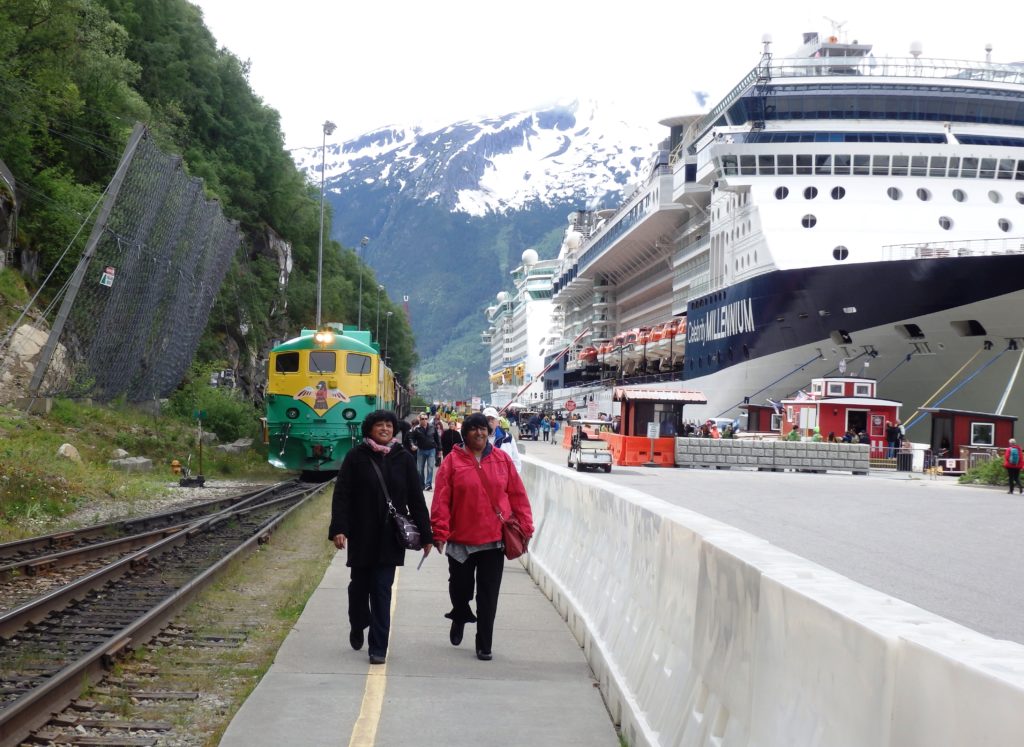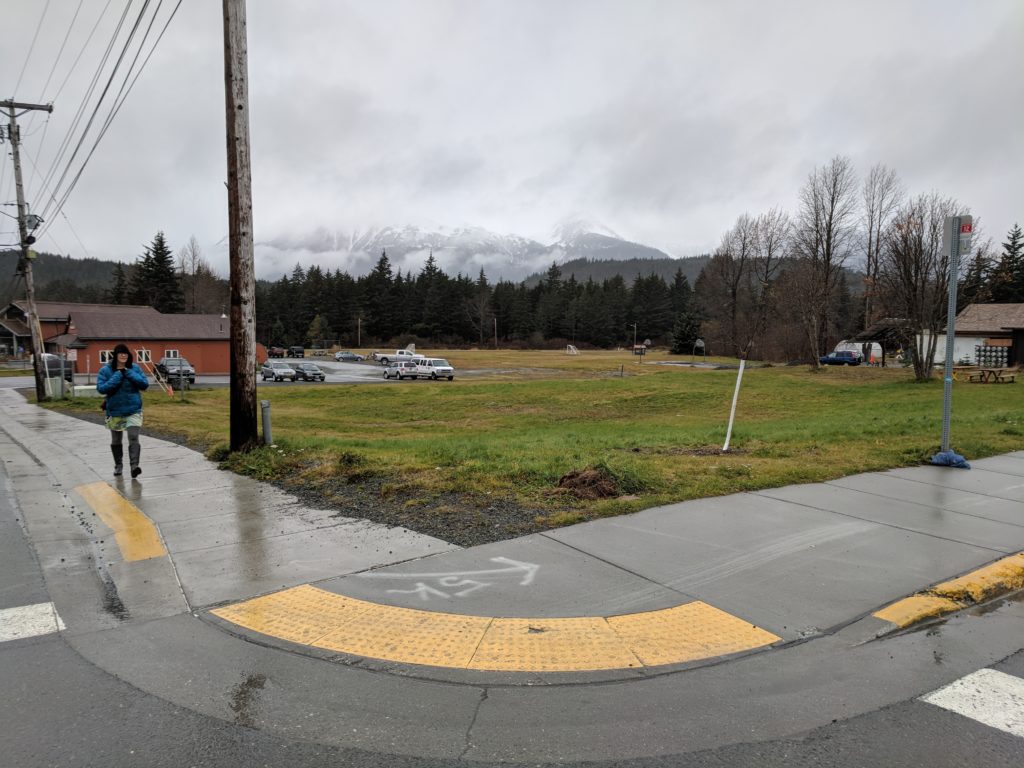
A White Pass and Yukon Route train. (Flickr John 6536)
A private company’s plans to spray herbicide in Skagway have alarmed some residents and officials, who are worried about environmental repercussions. One concern has to do with a waiver Skagway holds that exempts it from certain public water system testing. But the state official who oversees those exemptions says the herbicide spraying is unlikely to put the waiver at risk.
White Pass and Yukon Route Railroad is set to apply an herbicide called Oust along rail beds this summer. Railroad representatives say it will cut down on excess vegetation that makes for unsafe tracks.
Last week, the Skagway Borough Assembly voted to write a letter voicing concern over spraying planned in the town-site. Assemblyman Steve Burnham Jr. and some residents expressed concern that the spraying may jeopardize Skagway’s synthetic organic contaminants waiver.
“It’s highly unlikely that it would have any impact on the waiver that they currently have in place,” says Chris Miller, the Drinking Water Protection Coordinator at the Alaska Department of Environmental Conservation.
The waiver relieves public water systems from testing for synthetic organic chemical contaminants, like herbicides.
Miller says it comes down to this: the active ingredient in Oust is not one of the pesticides regulated by the waiver.
“Based upon how prevalent that contaminant was — and not just the prevalence but the actual toxicity of the chemical and the mobility, how it’s transported in the environment, those are some of the factors they took into account when creating that list.”
Oust’s main chemical, Sulfometuron-methyl, is not one of the dozens of contaminants on the waiver’s watch list. But the herbicide White Pass originally planned to use, RoundUp, is on the list.
“That would’ve had an impact on the SOC waiver,” Miller says.
White Pass switched from RoundUp to Oust in an effort to honor Skagway regulations on restricted herbicides.
Miller says after the Oust spraying happens, Skagway should run testing to make sure the chemical did not make its way into the water system. If the tests come back positive, DEC would likely require additional testing.
“I think it’s unlikely that you’re going to detect anything. But if you do detect something, then we may request additional sampling.”
Miller says if traces of the chemical were found in the water, the worst case scenario would probably involve more testing, but it’s still unlikely Skagway would lose the synthetic contaminants waiver.
“So I guess I can’t say for sure they wouldn’t be required to sample for additional [contaminants.] But it’s highly unlikely it will result in a denial of their waiver.
The exemption saves Skagway about $6,000 every three years in water monitoring costs.
Tyler Rose with White Pass says the spraying will happen within the next three weeks, depending on weather.









